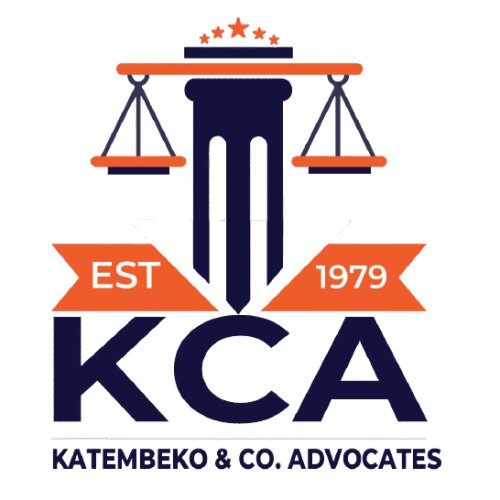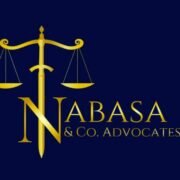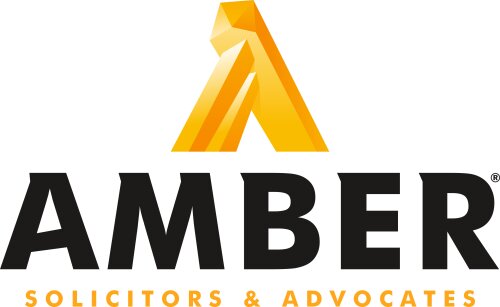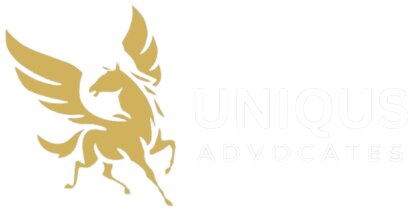Best Sports Law Lawyers in Uganda
Share your needs with us, get contacted by law firms.
Free. Takes 2 min.
Or refine your search by selecting a city:
List of the best lawyers in Uganda
About Sports Law in Uganda
Sports Law in Uganda is a specialized area of law focusing on legal issues relevant to sports, encompassing aspects that include contract law, labor law, taxation, antitrust, and torts. It deals with issues related to athletes, sports organizations, and the business aspects of sports. In Uganda, sports law is still a developing field, increasingly gaining attention due to the growth of the sports industry and professional sports activities in the country. The establishment of governing bodies like the Uganda National Council of Sports (NCS) plays a crucial role in overseeing the administration of sports in the country.
Why You May Need a Lawyer
There are several situations where you may require a lawyer specializing in sports law in Uganda:
- Contract Issues: Whether you are an athlete, a club owner, or a trainer, legal assistance is crucial in drafting, reviewing, and enforcing sports contracts.
- Dispute Resolution: Conflicts may arise within sports organizations or between athletes and clubs which require mediation or arbitration.
- Intellectual Property: Legal help may be needed for the protection of branding, merchandise, and broadcasting rights.
- Government Regulation Compliance: Ensuring that your sports activities comply with local, national, and international sports regulations.
- Employment and Labor Issues: Address legal challenges related to employment contracts, athlete transfer regulations, and workers' rights.
Local Laws Overview
In Uganda, several local legislations and regulations are pertinent to sports law:
- Sports Act: This act governs the management and oversight of sports institutions and addresses the promotion of sports in Uganda.
- Employment Laws: The Employment Act applies to all employment contracts within sports organizations, affecting coaches, players, and other sports personnel.
- Intellectual Property Laws: These protect trademarks, logos, and broadcasting rights related to sports events.
- National Council of Sports (NCS) Regulations: Provides guidelines for recognizing sports bodies and overseeing their operations.
Frequently Asked Questions
What is the role of the National Council of Sports in Uganda?
The National Council of Sports (NCS) regulates sports activities in Uganda, registers sports associations, and organizes national sports competitions.
How can a sports lawyer assist with contracts?
A sports lawyer can draft, review, and negotiate contracts to ensure fair terms and compliance with legal standards, protecting your rights and obligations.
What should I do if I have a sports-related dispute?
You should consult a lawyer who specializes in sports law for advice on legal options available for resolving disputes, which may include mediation or arbitration.
Are there any organizations for athletes' rights in Uganda?
Yes, there are player associations and governing bodies advocating for athletes' rights, such as those related to fair treatment and legal representation.
How are broadcast rights governed in Uganda?
Broadcast rights are governed by intellectual property laws which protect the commercial interest of broadcasting sports events.
Does sports law cover doping issues?
Yes, sports law also addresses issues related to doping, ensuring compliance with national standards and international sports regulations.
What does a sports agent do?
A sports agent represents athletes and manages their contracts and sponsorship deals, often requiring legal knowledge and expertise.
How can I protect my sports brand legally?
Your sports brand can be protected through registering trademarks and securing intellectual property rights for your logo and merchandise.
Is there legal support for amateur athletes?
Yes, there are advisory services and legal resources available for amateur athletes, particularly through sports associations and councils.
Can legal help assist with sports injuries claims?
Yes, a sports lawyer can help you understand your rights and pursue compensation claims in the event of sports-related injuries.
Additional Resources
For those seeking further information or assistance in sports law, the following resources may prove helpful:
- Uganda National Council of Sports: Offers guidelines and support for sports organizations and athletes.
- Uganda Law Society: Provides listings and contacts for lawyers specializing in sports law.
- Ministry of Education and Sports: Oversees sports policies and funding programs for sports development.
Next Steps
If you need legal assistance in sports law, consider taking the following steps:
- Research: Begin by understanding your legal needs and the specific areas where you require assistance.
- Consultation: Schedule a consultation with a sports lawyer to discuss your situation and explore potential legal actions.
- Documentation: Gather all relevant documents, such as contracts, agreements, and correspondence, related to your legal matter.
- Representation: Engage a qualified sports law attorney to represent your interests and handle your case, ensuring you have professional support throughout the process.
Lawzana helps you find the best lawyers and law firms in Uganda through a curated and pre-screened list of qualified legal professionals. Our platform offers rankings and detailed profiles of attorneys and law firms, allowing you to compare based on practice areas, including Sports Law, experience, and client feedback.
Each profile includes a description of the firm's areas of practice, client reviews, team members and partners, year of establishment, spoken languages, office locations, contact information, social media presence, and any published articles or resources. Most firms on our platform speak English and are experienced in both local and international legal matters.
Get a quote from top-rated law firms in Uganda — quickly, securely, and without unnecessary hassle.
Disclaimer:
The information provided on this page is for general informational purposes only and does not constitute legal advice. While we strive to ensure the accuracy and relevance of the content, legal information may change over time, and interpretations of the law can vary. You should always consult with a qualified legal professional for advice specific to your situation.
We disclaim all liability for actions taken or not taken based on the content of this page. If you believe any information is incorrect or outdated, please contact us, and we will review and update it where appropriate.
Browse sports law law firms by city in Uganda
Refine your search by selecting a city.
















